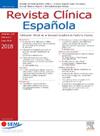Utilidad de la ecografía a pie de cama (POCUS) en el paciente hospitalizado con síndrome confusional agudo de etiología no aclarada
IF 1.7
4区 医学
Q2 MEDICINE, GENERAL & INTERNAL
引用次数: 0
Abstract
Acute confusional syndrome (ACS) is a disruption of cognitive function and attention that affects up to 42% of hospitalized patients, most commonly in those over the age of 65. It is typically triggered by one or more precipitating factors in predisposed patients. Point-of-care ultrasound (POCUS) emerges as a tool that could be used to provide quick and accurate information in the diagnosis of patients with ACS, potentially reducing the waiting time for critical interventions, decreasing the need for invasive procedures, and possibly improving clinical outcomes. To date, no articles have been published describing the utility of POCUS in patients with ACS.
Therefore, this work presents a review of the utility of POCUS in various pathologies that may be related to the development of ACS. Additionally, we propose an action algorithm that integrates clinical evaluation with bedside ultrasound, which could be useful for allowing quick and accurate identification of the underlying causes of ACS and the guidance of appropriate treatment, although prospective studies are needed to confirm this utility.
床下超声(POCUS)对病因不明的急性混淆综合征住院患者的效用
急性精神错乱综合征(ACS)是一种认知功能和注意力的紊乱,影响多达42%的住院患者,最常见于65岁以上的患者。在易感患者中,它通常由一个或多个诱发因素引发。即时超声(POCUS)作为一种工具出现,可以为ACS患者的诊断提供快速准确的信息,有可能减少关键干预的等待时间,减少对侵入性手术的需求,并可能改善临床结果。到目前为止,还没有发表文章描述POCUS在ACS患者中的应用。因此,本研究综述了POCUS在可能与ACS发展相关的各种病理中的应用。此外,我们提出了一种将临床评估与床边超声相结合的行动算法,这可能有助于快速准确地识别ACS的潜在原因并指导适当的治疗,尽管需要前瞻性研究来证实这一效用。
本文章由计算机程序翻译,如有差异,请以英文原文为准。
求助全文
约1分钟内获得全文
求助全文
来源期刊

Revista clinica espanola
医学-医学:内科
CiteScore
4.40
自引率
6.90%
发文量
73
审稿时长
28 days
期刊介绍:
Revista Clínica Española published its first issue in 1940 and is the body of expression of the Spanish Society of Internal Medicine (SEMI).
The journal fully endorses the goals of updating knowledge and facilitating the acquisition of key developments in internal medicine applied to clinical practice. Revista Clínica Española is subject to a thorough double blind review of the received articles written in Spanish or English. Nine issues are published each year, including mostly originals, reviews and consensus documents.
 求助内容:
求助内容: 应助结果提醒方式:
应助结果提醒方式:


